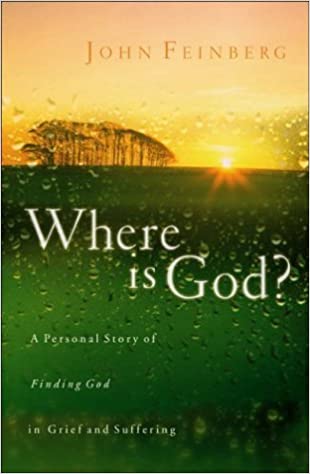This semester, I have assigned and read out loud the following passage from John Feinberg’s book, Where is God? The book is about Dr. Feinberg’s experiences of suffering. His wife was diagnosed with Huntingdon’s, an incurable and horrible disease. The question he deals with in the passage below is not limited to those who suffer. It is a question for any Christian. What precisely is the relationship between justice and grace? “…something was still wrong. There seemed to be a basic unfairness about our situation. Put simply, why was this happening to us, and not also to other people? Wasn’t it unjust of God to ask us to bear this…
-
-
The Reason for the Love of Human Life
Those opposed to the pro-life movement think that their opponents have a nefarious motive for their activism: “they don’t really care about babies. They just want power or control, or they just want to win.” In the following debate, the Hitch makes this explicit. Watch Bill Craig’s response. Starts at 1:16: Craig’s response is right. The Hitch presumes that Christians don’t have the intellectual resources to care for people in the present. All they have is a hope that the future, post-resurrection world will be better. All the Christian talk about life is really a veiled attempt to control others. Craig’s response is the denial of this premise. He argues…
-
On Merit
You do something great, I clap. The child is naughty, he gets no ice cream. The athlete wins the race, she gets a medal. All of these actions and reactions seem built into the universe. It’s just the way it is. According to Clifton Mark, this is false – this is not the way the world works. Oh, and believing it leads to evil. Mark defines meritocracy as the idea that “the rewards of life – money, power, jobs, university admission – should be distributed according to skill and effort.” Most people, he says, think of meritocracy as a fact about the world. It is just the way the world…
-
What Can We Do?
“we had no alternative except to prepare for direct action, whereby we would present our very bodies as a means of laying our case before the conscience of the local and national community” (Martin Luther King) Is it okay for a Christian to break the law? On the one hand, the Bible tells us to to obey governing authorities (1 Peter 2; Romans 13). On the other hand, there are examples of apparent justified law-breaking (Esther 4; Daniel 1, 3, 6; Acts 5:29). Occasionally, Christians are obliged to break the law. When the law asks us to perform acts contrary to the explicit command of God, we are obliged to…
-
On Law and Justice
If you were to find yourself in court accused of performing an action that you think is morally permissible–good, even–but against which there is a law, how would you react? Most likely, even if everyone in the room thought otherwise, you would think an injustice was being carried out. Imagine being led from the courtroom to undergo lashing, imprisonment, or even death when in your mind you had done nothing wrong. I’m sure most people’s stomachs would be in a knot. You’d be angry and incensed for good reason. The reason, I suggest, is that legal codes of particular governing authorities are beholden to a higher law. Now, perhaps you…
-
Why Christians Use the Bible in Moral Arguments
What is the point of citing Bible verses when making moral arguments? Since not everyone believes the Bible to be true or authoritative, surely we need to make arguments based on something else, something we have in common. But Christians use the Bible all the time. Why? To get to an answer, one has to consider a range of issues in ethics. Once one has reasoned through these questions, it becomes clear why many Christians find that the Bible has an essential role to play in most moral reasoning. Thus, when engaging in moral debate, we often use the Bible. The first relevant issue is whether moral statements are translatable…
-
On Moral Relativism
Cultural Relativism is the view that “Normality…is culturally defined” (Ruth Benedict). More precisely, cultural relativists hold to MR: (MR) There is no moral principle which necessarily applies to everyone, everywhere, and at every time For the cultural relativist, the source of moral principles is the conventions given by a group of people who make up a culture. The argument for such a view is: What is normative is culturally determined What is moral is normative Therefore, what is moral is culturally defined There are a couple of reasons why one might hold to such a view. First, the following is true: “Beliefs about what is right and wrong vary from culture…
-
Hard Work Does Not Always Pay
Though it is generally true that those who work hard will earn a living, the sweat of your brow has no necessary connection with the contents of your wallet. The value of your labor does not determine its price. What determines the price of something is the amount someone is willing to pay for it. Nor is there are moral connection – without a voluntary agreement to pay for someone’s labor, work itself does not obligate anyone to pay for it.







